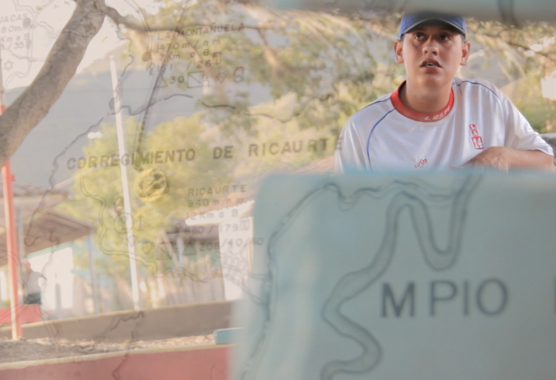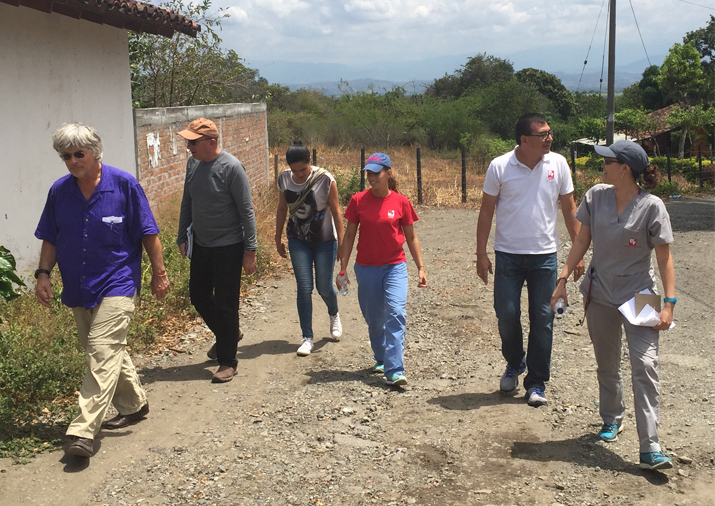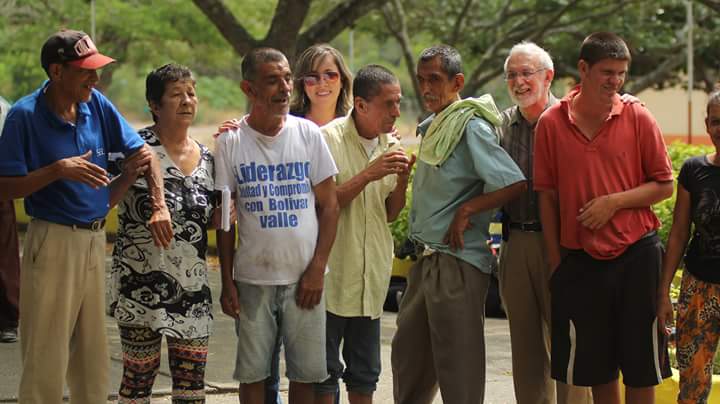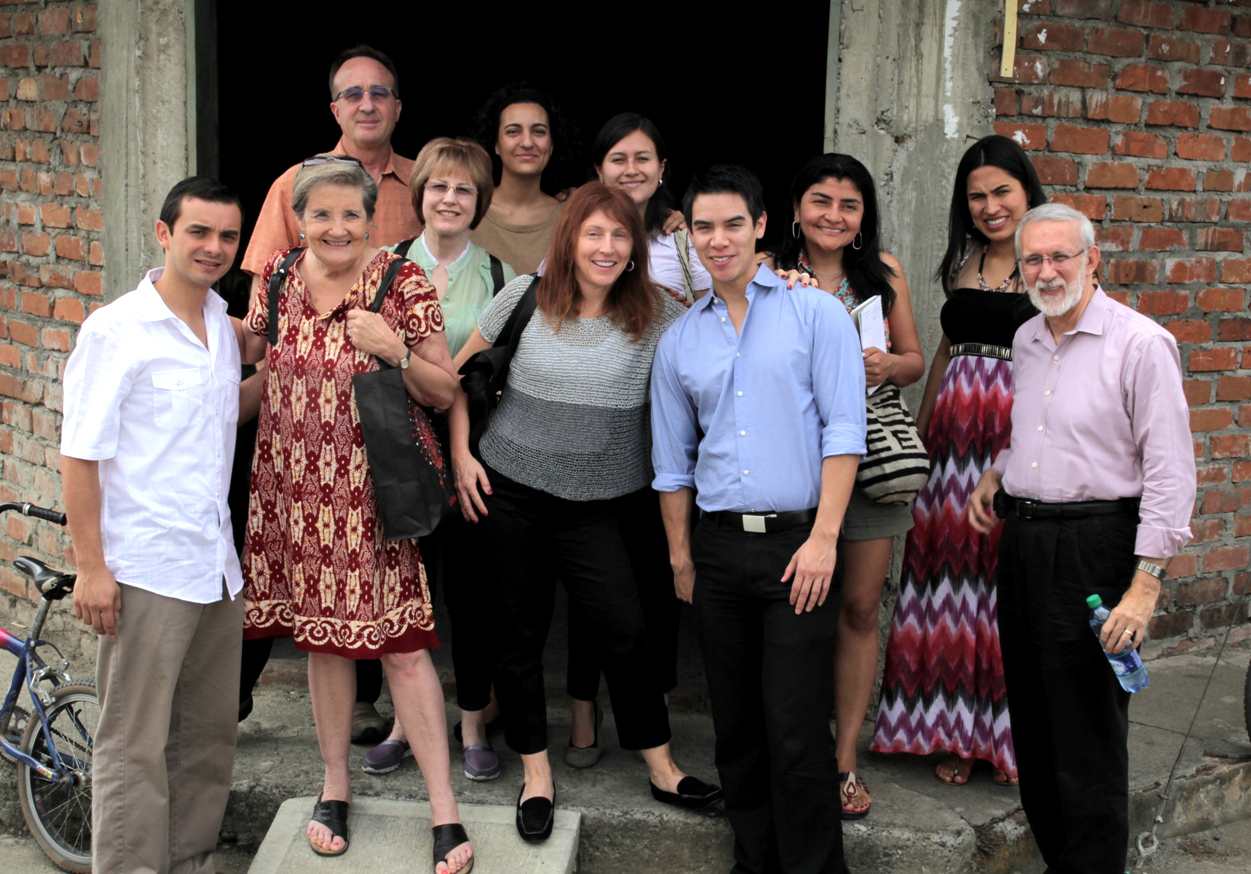The Colombia Project of Hope
A Fragile X Research and Humanitarian Project of the UC Davis MIND Institute

In 2013, researchers at the internationally respected UC Davis MIND Institute formed a collaboration with scientists at the Universidad del Valle in Cali to investigate the high incidence of fragile X in one region, the Valle del Cauca District in Colombia, South America. The collaboration aims to advance fragile X research and benefit individuals with fragile X in the United States and around the world by focusing on the recently identified fragile X hotspot in the South American nation. A site visit in 2013 and a follow-up visit in 2016 have proven very beneficial.
2013 site visit: Solving a medical mystery
In November 2013 fragile X researchers led by MIND Institute Medical Director Randi Hagerman visited the Valle del Cauca District and the small town of Ricaurte, Colombia, which for years has been known to have a very high prevalence of individuals with intellectual disability. Hagerman and her team from the Fragile X Research and Treatment Program tested many of Ricaurte’s residents, using a blood-spot test developed by Flora Tassone, UC Davis professor of biochemistry and molecular medicine. Conducted in partnership with Colombian scientists, the testing found a very high incidence of fragile X related mutations among the population — the reason for the region’s very high levels of intellectual disability and the solution to a decades-old medical mystery.
The birth of a new initiative
Upon determining the high incidence of fragile X in and around Ricaurte, the MIND Institute investigators determined that studying this fragile X hotspot could offer additional clues to the development of fragile X and its incidence in other populations around the world. They determined to approach the initiative through collaborating with their colleagues at research institutions in Colombia. The Colombia Project of Hope was born. The project’s aims:
- Screen for fragile X mutations in larger populations in Colombia, to determine the prevalence of fragile X and fragile X carriers of the premutation in Ricaurte and throughout Colombia.
- Initiate outreach programs addressing treatments from the medical, education and family viewpoints for those who are positive in the screening.
- Educate physicians, therapists and health-care providers throughout Colombia about fragile X, premutation involvement, autism, and related neurodevelopmental disabilities, to increase the treatment endeavors of these providers.

During the initial trip in 2013, Hagerman and a team of professionals from UC Davis and other organizations and institutions, traveled to Cali to meet Wilmar Saldarriaga, the head of Genetics at the Universidad del Valle. Saldarriaga described his preliminary studies from Ricaurte, demonstrating a strong presence of individuals who tested positive for fragile X, most likely due to a “founder effect.” When asked about the founder effect, Hagerman described it as follows:
The very high prevalence of fragile X mutations including premutations and full mutations in individuals in Ricaurte is related to a founder effect thought to come from the Conquistadores. Founder effect means that the founding families of a population included those with a mutation that increased in number as the population increased in size. Here, specifically, the premutation was in the three founding families of Ricaurte and these families came from the Conquistadores that settled in Ricaurte near Cali, Colombia a few hundred years ago. These families also included men who had the premutation. All of the daughters of these men had the premutation and then their children, grandchildren and/or great grandchildren had fragile X syndrome as the CGG repeat number expanded through the generations. Those without intellectual disability in the families often moved away but those with intellectual disability stayed in Ricaurte so over centuries the number of residents with intellectual disability gradually increased. This is often the case in a poor rural town or village in many countries where the lack of money leads to a lack of mobility to an area with more resources. Also Ricaurte is where those with intellectual disability fit in comfortably within the community because the majority of the families have at least one person affected by fragile X so it is the status quo and very well excepted throughout the community. The village thought that the intellectual disability was caused by a toxin in the water and it was not until fragile X testing was undertaken that it was determined that the cause was a genetic mutation.
We know that the prevalence of fragile X mutations is high in Spain and perhaps the tendency for carriers to have hyperactivity or high energy levels maybe led to an attraction to become Conquistadores and explore new worlds in the 1400s. The effect of these founders to the New World likely has led to other areas where there is a pocket of those with fragile X. The prevalence seems to also be high in Cali, Bogota and Medellin and perhaps elsewhere in Colombia and throughout South America and Mexico.
During the 2013 trip and throughout 2014 and 2015, in collaboration with new colleagues at the Universidad del Valle in Cali led by Saldarriaga, blood spots were collected from the majority of the long-term citizens in Ricaurte. Those spots were analyzed by Flora Tassone and her team at the UC Davis MIND Institute in California. She shared the following:
A genetic conglomerate of individuals with Fragile X Syndrome, likely due to a founder effect, has been identified in the town of Ricaurte, which appears to have the highest prevalence of both full mutations and premutations in the world accordingly to the data so far published in the literature (review in Tassone et al., 2012). Fragile X Syndrome the most common form of inherited intellectual disabilities and monogenic cause of autism affects, in most populations, approximately 1 in 5,000 males and 1 in 6,000 females and the prevalence of premutations is as high as 1 in 130 in females and 1 in 250 in males. Our preliminary results from the screening of the town of Ricaurte (~800 individuals) indicate that indeed the prevalence of both full mutations and premutation is much higher than in the general population being more than 100-fold in males with a full mutation and 10-fold in carrier females. In addition, we have identified two very large families with many affected people. (More than has ever been published.)
These extraordinarily high numbers were the strong evidence that the founder effect was the cause. With this new knowledge in hand, a second trip was organized for the winter of 2016 during which additional blood spots were taken and, very importantly, the Colombia Project of Hope team worked diligently to transfer the latest fragile X knowledge to professionals and families in Colombia.
2016 site visit: Bogota, Cali, Ricaurte, Barranquilla, Medellin :
In February 2016, in addition to continuing the research and human service work in Ricaurte, the project team traveled to four other cities to lecture, meet with families and conduct clinics. These trips were organized by members of the Asociación Colombiana de X Frágil, a parent support organization that formed at the time of the 2013 visit. Lectures and clinics took place at:
- Universidad Javeriana – Bogota
- Universidad del Valle – Cali
- Universidad del Norte – Barranquilla
- Universidad CES – Medellin
The lectures were conducted for professionals, students and parents and, at all four sites, medical students joined the clinic teams to serve as interpreters while simultaneously benefiting from observing the team members interview and examine fragile X patients.

Prior to the 2016 trip, four telehealth presentations in Spanish were created by MIND Institute team members and shared with professionals and families throughout Colombia. Those presentations addressed the areas of Genetic Counseling, Behavior Modification, the Use of New Technologies for Psychoeducational Purposes, and Medications.
Once in Colombia, lectures to university students and intervention professionals, formal and informal small group meetings and family-friendly presentations regarding topics of high interest to parents and other caregivers, were the primary means of information dissemination. MIND Institute faculty also shared numerous technical research papers with their Colombian counterparts.
Essential to the goals of the project were the evaluations and consultations provided to individual families in each city visited. Each family typically met with a team comprised of a medical doctor and specialists representing genetic counseling, psychology and behavior. When necessary, an interpreter (often a local medical student) would be part of the team. These meetings reinforced a lesson previously learned: Trust must be established between the professionals and a family before the family may be willing to share their biggest concerns. More than once, for example, did a parent indicate at the beginning of an interview that aggression was not an issue, only to bring it up at the end of a one-hour session. Cultural and linguistic differences made the development of trust even more challenging.
An important part of this project had to do with the critical lessons learned in regards to conducting research and providing human service in a foreign country. Under the guidance of Sergio Aguilar-Gaxiola, Director of the UC Davis Center for Reducing Health Disparities, the project team carefully considered the cultural, economic and linguistic challenges confronting it. Lessons learned during the 2013 trip were applied to the 2016 trip which included ensuring that:
- Objectives were culturally appropriate and politically sensitive
- Research goals were linked to needed interventions
- Projects were community empowering and sustainable
- There was community involvement in defining objectives
- Young professionals were recruited, motivated and trained
- Plans were made for follow-up and ongoing monitoring
2019: A Third Trip to Colombia
In 2019, a number of UC Davis MIND Institute faculty, staff from the Fragile X clinic at the Universidad del Valle in Cali, and colleagues from the Asociación X Frágil Colombia, completed a third trip throughout Colombia including Cali, Medellin, Bogota, Buqa and Ricaurte. The work involved numerous talks at medical centers and over 75 meetings with individual families. Most importantly, the visiting team spent an entire day in Ricaurte providing evaluation and treatment recommendations to the many impacted families. The trip ended with a 90-minute meeting with the Special Advisor on Disability Issues to the President of Colombia who took great interest in the efforts to improve awareness, diagnosis and treatment.
More About Ricaurte
As one of the leaders of the Colombia effort, and medical director of the country’s only Fragile X clinic, Wilmar Saldarriaga Gil from the Universidad del Valle in Cali (and someone who spent many months training at the UC Davis MIND Institute) is committed to ensuring that the people of Ricaurte are not forgotten.
Conclusion
While the analysis of the Colombian genetic screening results is ongoing, much has already been learned from the project and the three trips to Colombia. All of the team members have increased their understanding of, appreciation for, and skill at dealing with the challenges of conducting research and providing human service in an economically challenged region and within a different culture. Forging meaningful and productive working relationships with international colleagues will always be an essential goal, especially when viewing fragile X from a global health perspective, and the Colombia project taught all of the team members much about what it takes to develop those relationships. The lessons learned will serve us well as we attempt to understand and provide assistance for other communities strongly impacted by fragile X, whether in Colombia or elsewhere.
The Colombia Project of Hope is ongoing. With many Colombian professionals and fragile X families now talking to one another, fragile X awareness spreading throughout the country, research that is leading to better knowledge, and access to appropriate treatment becoming more common, there is great optimism and, yes, hope.
In addition to many Colombian and American volunteers who have contributed to this project, key team members include:
- Randi J. Hagerman, UC Davis MIND Institute

- Sergio Aguilar-Gaxiola, director, UC Davis Center for Reducing Health Disparities
- Flora Tassone, professor, biochemistry and molecular medicine
- Sergio Villada, president, Special Kids Foundation, Miami
- Wilmar Saldarriaga, head of genetics at the Universidad del Valle, Cali
- Reymundo Lozano, professor of pediatric genetics
- Louise Gane, former genetic associate at the MIND Institute
- Robert Miller, coordinator, International Training Program in Neurodevelopmental Disabilities at the MIND Institute
- Dorcas Liriano Roa, psychologist at the MIND Institute
- Paul Hagerman, Distinguished Professor of Biochemistry and Molecular Medicine UC Davis MIND Institute
- María Díez-Juan, former international scholar at the MIND Institute, psychologist, Sant Joan de Déu Hospital, Spain
- Joanne Latore, secretary, Asociación X Frágil Colombia
How you can help advance fragile X research worldwide
Generous donations from the MIND Institute, the institute’s Fragile X Treatment and Research Program and the Special Kids Foundation made the first visit to Colombia possible. We hope others will be moved to support the project, transform the lives of the residents of Ricaurte, and advance biomedical research in through this unique collaboration with the Central American researchers, as well as bringing health-care providers education and new treatments to the people of Colombia living with fragile X. Thank you for your support!
Donate online
- Under Please Select Recipient select MIND Institute
- Under Special instructions for this gift type in The Colombia Project of Hope
- If donating from outside the USA, please, enter your full address under Special instructions for this gift type in The Colombia Project of Hope
Donate by mail
- Under Areas gifts may be designated to, check Other and print The Colombia Project of Hope

